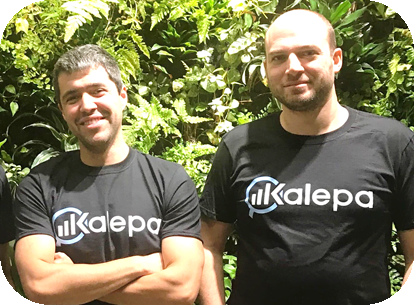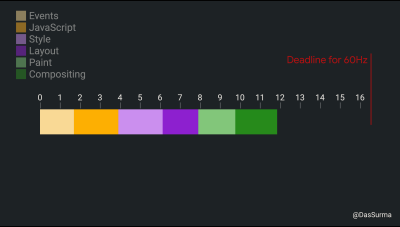
With digital marketing, businesses grew, and marketing evolved. There were simply too many potential channels for brands to reach out to their target audience when it comes to digital marketing. So, the demand for digital marketing is really not a surprise. With IoT devices furthering this cause, brands have come a long way since the old-school advertising and marketing strategies.
At its initial stage, marketing was more of an art, but technology dissected it, and now it’s as much of a science as it’s an art! Marketing departments were able to increase the ROI by many folds, and moreover, with tech, they can quantify their efforts and measure the impact.
There were many influential technologies that played a major role in this transformation, but Artificial Intelligence took it to a whole new level. From AI-enabled bots to independent systems, marketing operations became simplified yet the intensity amplified. Particularly in the area of content marketing, AI played and will continue to play a significant role.
Irrespective of the industry, location, or business model, content marketing proved to be an effective tool for brands to reinforce their presence, develop new connections, and educate their customers and audience.
In this article, we will see how AI impacts brands’ content marketing efforts and strategies.
Crafting the strategy
Table of Contents
We all know how leveraging data changed the marketplace, and its effect on marketing, too, is not to be taken lightly. And AI facilitates organizations to leverage data. For instance, a popular brand like Nike or Apple will have enormous consumer data, and if done manually or even with technology but without AI, it would take at least decades before they begin to understand data.
With the versatility that AI brings to the table, marketing departments could narrow this window to mere days! On top of that, AI operates with insane accuracy! It’s incapable of human errors, and its efficiency and effectiveness will only go up as it works longer. With AI, brands can easily understand the area where the action happens. Based on this understanding, marketing leaders and managers can devise a strategy that caters to their audience.
Nailing the accuracy
The “Content” in content marketing is just half the answer! The other half is taking the content to the audience. Content is time sensitive, meaning they get outdated once the hype wave moves away. So, the pressure to bring the right content to the audience at the right time is on the marketers!
However, AI systems have been found to be extremely useful in helping marketers in this regard. AI systems can understand the user’s preferences by analyzing their previous interactions and hook them up with interesting pieces of content. The neat part, however, is that the system gets better with every interaction. So, the more a user interacts (or does not interacts), the system operates with higher accuracy.
Creating the content
Ever since AI became a “thing”, writers are often threatened with AI replacing them in the marketing fields. Well, it’s logical as to why they are afraid, as AI has grown by many folds in just a matter of years, but it is highly unlikely for AI to replace writers. Though there are AI systems in the market and in development to create content on their own, catering to the context, they are more efficient when the system is paired with a human writer!
Take Google Ads, for instance. They have completely stopped their expanded text ads and rather focused on developing responsive search ads. Though the AI system pairs the suitable headings with the body content, the copies are still being written by a writer! There are many other platforms that use AI to create content, but there is a huge difference when a writer uses it than any others.
Chatbots for the win!
As the market got increasingly consumer-centric and the business strategy became more digital, the importance of chatbots couldn’t be sidelined. Chatbots are basically independent AI systems that are modified to suit your business needs. Chatbots can not just initiate conversation but can solve most of the user’s immediate problems instantly. It can converse with a “human” tone, making the conversation more contextual and lively.
However, in 2022, chatbots will also help a great deal by contributing to the content marketing strategy. Businesses are producing content almost daily, and it might be difficult for users to find a particular piece of information without diving deep into an ocean of manuals or articles. Enter chatbots! They can help a user find the specific piece of information that instantly helps the user out. It can also materials related to the user’s interactions without overwhelming them. It’s a great win for businesses, particularly at a time when websites are highly popular!
Predictive analytics and content marketing
Predictive analytics is helping businesses to take effective decisions by narrowing the risk horizon. With the normalization of AI, predictive analytics has become more accessible and accurate, too! Now, there are only a handful of enterprises that do not include predictive analytics in their strategy.
In content marketing strategies, predictive analytics can help identify marketers with the type of content that a user will be interested in. Without AI, such a level of sophistication is simply out of the question! Content creators can pour their efforts into areas that actually bring value. With the market being highly competitive, accuracy has become a crucial factor, and AI-enabled predictive models can help creators to cater to the audience of tomorrow. Content creators and marketers can operate with minimum risk while maximizing their efforts at minimal resources! How lucky can it get?
Conclusion
Industry leaders have always believed and still believe that technology can bring new perspectives to a business, helping them to identify opportunities and capitalize on them. And Artificial Intelligence can further elevate this “digital vision”. Collaborating with dedicated Enterprise AI solution providers can dramatically increase your AI implementations and efforts. It could prepare us to move towards a sustainable future if leveraged properly. AI penetration is transforming the internal operations of an organization, and it certainly has a positive impact on marketing operations, too! So, it’s gonna be an exciting future for marketing!






